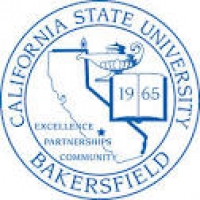






Economics is the science of decision making under scarcity and of organizing the production and distribution of goods and services within and between nations. Knowledge of economics can make a significant contribution to citizenship, cultural and intellectual development. Economics is an analytical discipline that reinforces skills such as decision-making, making logical deductions and statistical inferences, as well as collecting and analyzing data. Economic analysis is the process of applying economic tools and the economic way of thinking to real- world problems. The program's curriculum provides a thorough understanding of economic theory and applies the theory to evaluating public policies, analyzing the external economic environments of organizations, providing decision support, determining tradeoffs among alternatives, and formulating tactical and strategic decisions. CSUB Economics graduates pursue careers in diverse areas such as: government and public policy, business, agriculture, banking and financial services, international trade or diplomacy, teaching, and the law. The Bachelor of Science in Economics is well suited for students who are considering making the bachelor's degree a terminal degree. However, it also is an excellent foundation for students who are considering the MBA, MPA, or another professional graduate program. Graduates of this degree program develop breadth in a complementary area of business or public administration and are equipped with the knowledge and skills to productively contribute to employers in the private, public, and non-profit sectors. Students intending to pursue a master's degree in economics should complete a calculus course or two and additional statistics and research methods courses. Students who intend to pursue a doctoral program in economics should complete the calculus sequence and course work in linear algebra, differential equations, probability theory, and mathematical statistics. In addition to the B.S. degree in Economics, the Economics Department offers an Economics Concentration within the B.S. in Business Administration, an Economics Minor, and various courses fulfilling university-wide requirements (General Education Area D2, Upper Division Theme 3, Gender, Race and Ethnicity). Additional information on economics as an academic discipline, the economics curriculum, and careers for undergraduate economics majors can be found by following our Website links or visiting with the economics faculty.
| Number | Duration |
|---|---|
| 4 | year |
Objective 1, Communication Skills: The student will communicate effectively by: (1) having a clear purpose and focusing on the intended audience; (2) reasoning in a logical and organized fashion; (3) applying theories correctly and presenting supporting and compelling evidence; (4) having discourse-appropriate syntax that is free from grammatical errors and distracting mannerisms; and (5) having a professional demeanor and producing polished documents and supporting materials. Priority areas: written and oral presentation. Objective 2, Quantitative Reasoning: The student will demonstrate proficiency in quantitative reasoning by: (1) making accurate calculations; (2) effectively summarizing data and depicting it in charts and graphs; (3) designing quantitative approaches to real-world problem solving; and (4) critically interpreting quantitative results and findings. Priority areas: spreadsheet skills, statistical/econometric estimation and hypothesis testing, finite math, and derivatives. Objective 3, Disciplinary Knowledge: The student will demonstrate: (1) a working knowledge of economic concepts and theories and (2) an ability to use economics to explain and predict cause-effect relationships. Priority areas: microeconomics, macroeconomics, international economics, statistics and econometrics. Objective 4, Authentic Application of the Major: The student will apply the major in authentic contexts, including competency in locating pertinent data and information. Priority areas: (1) analysis of the external economic environments of organizations (the macro economy, markets, regions, countries); (2) operations and decision support in organizational settings; and (3) policy analysis.